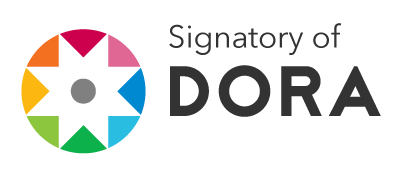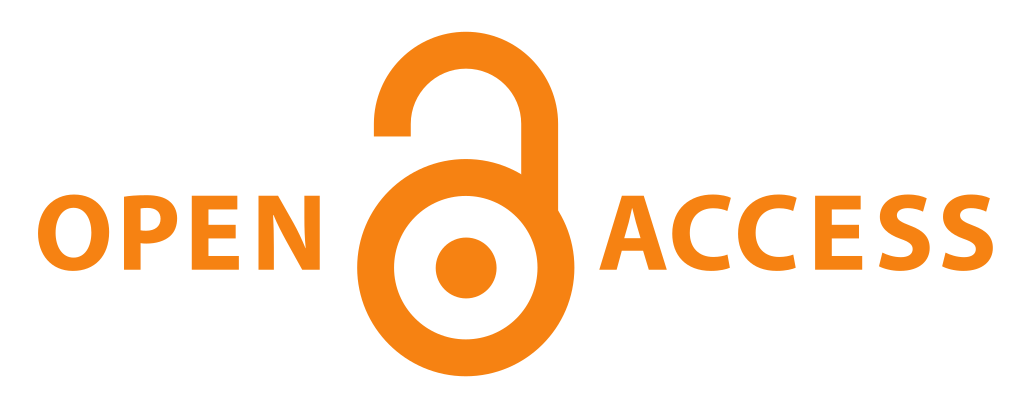Competencia lingüística profesional de estudiantes de universidades técnicas: concepto, especificidad y desarrollo
Palabras clave:
competencia lingüística profesional, universidad técnica, enfoque basado en competencias, formación técnico profesionalResumen
El objetivo de este artículo, es proporcionar una definición estricta del concepto de “competencia”, que se puede utilizar en el contexto de la formación en idiomas de estudiantes de universidades técnicas. La revisión de la literatura muestra la necesidad del desarrollo de la competencia lingüística profesional, en los futuros ingenieros fabricantes de herramientas de las universidades técnicas en Rusia. Con base en esta revisión, se ha identificado la naturaleza y el proceso de desarrollo de la competencia lingüística profesional. Adicionalmente, se determinan las condiciones pedagógicas necesarias que un maestro debe seguir para el logro de esta capacidad.
Citas
Albrecht, N. V. & Kondrina, I. M. (2013). Foreign Language communication as a tool of development of professional mobility of students from non-linguistic university: monograph [Inoyazychnaya kommunikatsiya kak sredstvo razvitiya professional’noj mobil’nosti studentov neyazykovogo vuza: monografiya], 242 p. (in Russian).
Aleshchanova, I. V. (2006). Narrative competence in speech behavior of personality [Narrativnaya kompetentsia v rechevom povedenii lichnosti]. Izvestia Volgograd State Technical University, 6, 100-102. (in Russian).
Andrienko, A. S. (2007). Razvitie inoyazycnnoy professionalnoy kommunikativnoy kompetentnosti studentov tekhnicheskogo vuza (na osnove kreditno-modulnoy tekhnologii obucheniya). [Development of foreign language professional communicative competence of the technical college students (on the basis of credit-and-unit technology training)]. PhD thesis, Rostov-na-Donu, 282 p. (in Russian).
Baidenko, V. I. (2005). Bolonskii protsess: seredina puti [Bologna Process: The Midway]. Moscow: Research Center for Quality Problems in Specialist Training, Russian New University. 379 p. (in Russian).
Chichilanova, S. A. (2010). Foreign communicative competence forming of students from technical institution of higher education in a process extracurricular self-dependent work: PhD thesis, Chelyabinsk, 195 p. (in Russian).
Chomsky, N. (2014). Aspects of the Theory of Syntax. MIT press, 11.
Galyamina, I. G. (2004). Proektirovaniye gosudarstvennykh obrazovatelnykh standartov vysshego professionalnogo obrazovaniya novogo pokoleniya s ispolzovaniyem kompetentnostnogo podkhoda [Design of state educational standards of higher education of new generation with competency-based approach]. Moscow: Research Center for Quality Problems in Specialist Training, Russian New University, 1(49), 285-297. (in Russian).
Gareyev, А. А., Shikhova, О. F., & Shikhov, Yu. А. (2018). Organization of independent student work based on student blogging activity. Education and Science journal [Obrazovanie i nauka]. 20(3), 117-136. (in Russian).
Gez, N. I. & Frolova, G. M. (2008). Istorija zarubezhnoj metodiki prepodavanija inostrannyh jazykov [The History of Teaching Foreign Language Methods], Moscow: Academy, 256 p. (in Russian).
Federal state educational standard of higher education, training program. (2015). 11.03.03 “Design and technology of electronic means (bachelor’s level)”, approved by the Ministry of education and science of Russian Federation, November 12, 2015, N 1333. (in Russian).
Frolova, N. А. & Aleshchanova, I. V. (2007). Teaching to abstract and annotate professional texts in foreign languages in complex training of specialists [Obuchenie referirovaniyu i annotirovaniyu professional’noj literatury na inostrannom yazyke v kompleksnoj podgotovke spetsialista]. Modern problems of science and education [Sovremennye problemy nauki i obrazovaniya], 5, 11 p. (in Russian).
Hutmacher, W. (1997). Key competencies in Europe. European journal of education. 32(1), 45-58.
Kostyukova, T. A. & Morozova, A. L. (2011). Development of foreign language Communication competence of students from non-linguistic universities: monograph [Razvitie inoyazychnoy kommunikativnoy kompetentnosti studentov neyazykovykh vuzov: monografiya]. Tomsk: Tomsk. politekh. universitet. 119 p. (in Russian).
Kruchinina, G. А. & Mikhailova, Е. B. (2012). Forming professional foreign language competence in students of engineering specialities under the conditions of informatization of higher professional education [Formirovanie professional’no-inoyazychnoj kompetentnosti studentov inzhenernykh spetsial’nostej v usloviyakh informatizatsii vysshego professional’nogo obrazovaniya]. Bulletin of Lobachevsky Nizhny Novgorod University, 4(1), 26-33. (in Russian).
Medvedev, V. & Tatur, Y. (2007). Training of university teachers: competence based approach. Vysshee obrazovanie v Rossii [Higher education in Russia], 46-56. (in Russian).
Mikhailova, E. B. (2012). Formation of professional-foreign competence in students of engineering specialties using the means of information and communication technologies [Formirovanie professional’no-inoyazychnoj kompetentnosti studentov inzhenernykh spetsial’nostej s ispol’zovaniem sredstv informatsionnykh i kommunikatsionnykh tekhnologij]. PhD thesis, Nizhny Novgorod, 293 p. (in Russian).
Mukharkina, S.A. (2008). Intercultural communication-professional competence forming of a specialist in a postindustrial society. Izvestiia Rossiiskogo gosudarstvennogo pedagogicheskogo universiteta im. AI Gertsena [Izvestia: Herzen University Journal of Humanities & Science], 65. (in Russian).
Petrova, I., Zaripova, V., & Ishkina, E. et al. (2013). Tuning Russia: Reference points for the design and delivery of degree programs in information and communication technologies. Bilbao: University of Deusto. 86 p. (in Russian).
Prahova, M. Y., Zaichenko, N. V., & Krasnov, A. N. (2015). Evaluation of formation of professional competence. Vysshee obrazovanie v Rossii [Higher Education in Russia], 2, 21-28. (in Russian).
Professional standard “Design engineer in telecommunications”. Approved by the decree of the Ministry of Labour and Social Protection of the Russian Federation No. 316n of 19 May 2014. (in Russian).
Professional standard “Adjuster of radioelectronic equipment and devices”. Approved by the decree of the Ministry of Labour and Social Protection of the Russian Federation No. 531n of 4 August 2014. (in Russian).
Professional standard “Radioengineer in aerospace industry”. Approved by the decree of the Ministry of Labour and Social Protection of the Russian Federation No. 971n of 3 December 2015. (in Russian).
Shikhova, O. F. & Shikhov, Yu. A. (2013). “Qualimetric approach to diagnostics of graduates’ competences of the higher school”. Education and Science journal [Obrazovanie i nauka], 4, 40–58. (in Russian).
Subetto, A. I. (2009). The ontology of the competence-based approach in educational systemology. Siberian Pedagogical Journal, 1, 100-126. (in Russian).
Tatur, Y. G. (2004). Competency-based approach in the describing the results and design of higher education standards. Proceedings of the second meeting of the methodological seminar, Moscow, 17 p. (in Russian).
Tayurskaya, N. P. (2015). Foreign language communication competence [Inoyazychnaya kommunikativnaya kompetentsiya: zarubezhnyj i rossijskij opyt]. Humanitarian vector. Series: Pedagogy, psychology, 1(41), 83-87. (in Russian).
Verbitsky, А. А. & Tenischeva V. F. (2007). Foreign competencies as the component of general professional competency of engineer. Vysshee obrazovanie segodnya [Higher education today], 12, 27-31. (in Russian).
Vygotsky, L. S. (1997). The collected works of L. S. Vygotsky: Problems of the theory and history of psychology, Springer Science & Business Media, 3, 426 p.
Zeer, E. F. (2005). Competence-based approach to education. Obrazovanie i nauka. [The Education and Science Journal], 3(33), 27-40. (in Russian).
Zeer, E. H. & Symaniuk, E. H. (2005). Competency-based approach to modernization of higher education. Vysshee obrazovanie v Rossii [Higher education in Russia], 4, 22-28. (in Russian).
Zimnyaya, I. A. (2004). Key competencies as effectively-targeted base of competency-based approach in education. Moscow: Research Center of the problems of the quality of specialist’s training, 42 p. (in Russian).
Descargas
Publicado
Cómo citar
Número
Sección
Licencia

Esta obra está bajo una licencia internacional Creative Commons Atribución-NoComercial-SinDerivadas 4.0.








